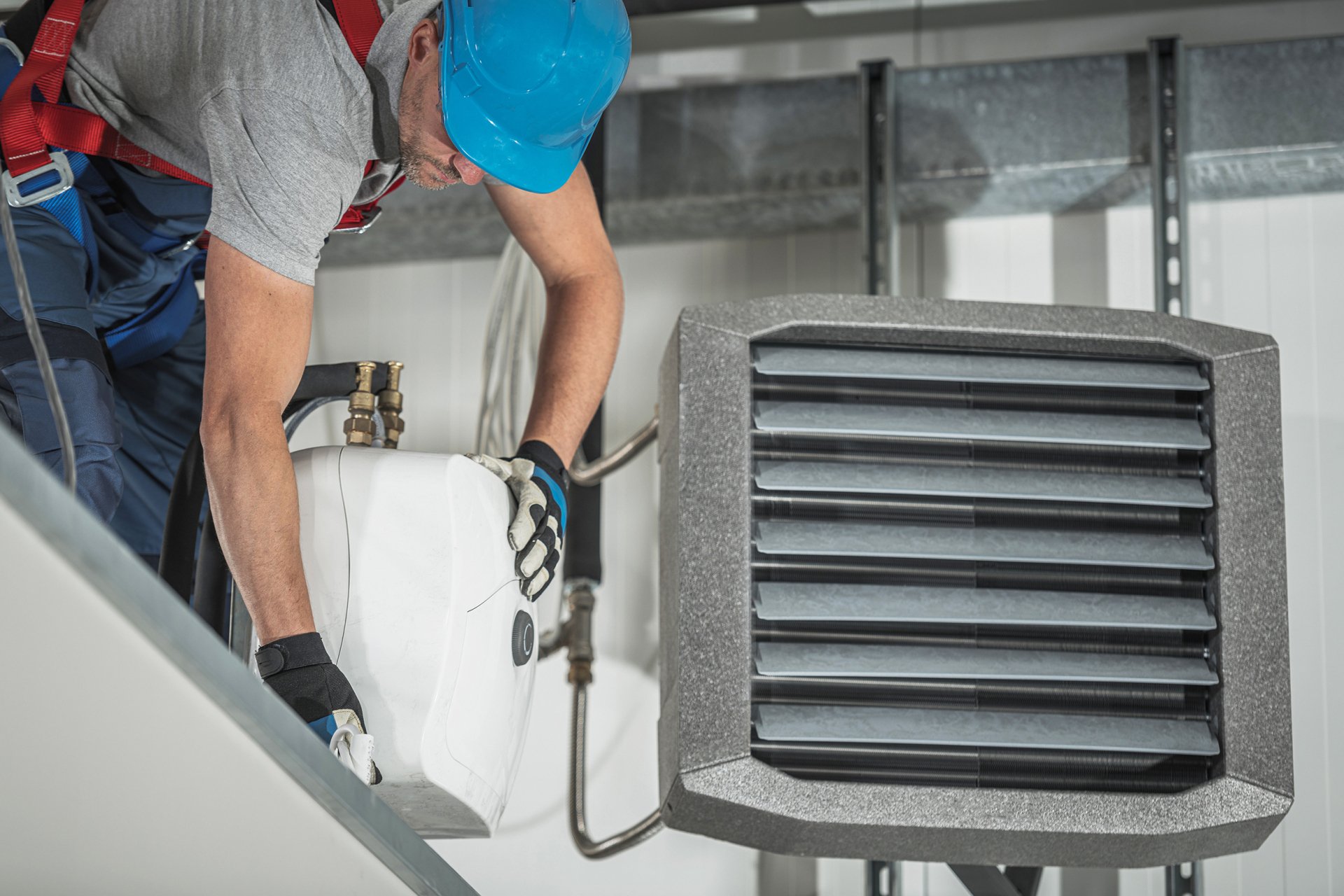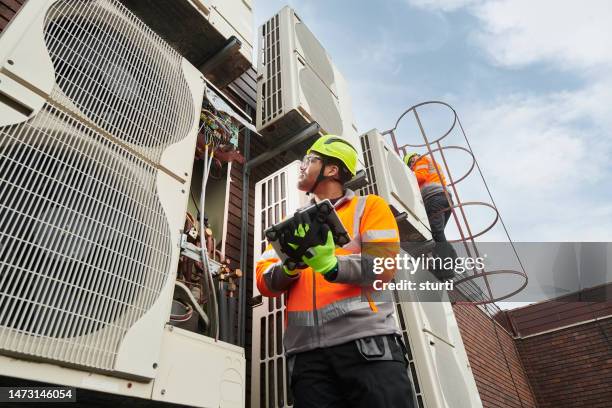Choosing Between a Heatpump and Heater: Key Considerations for Your Cooling And Heating Requirements
When reviewing heating choices for cooling and heating requires, the choice in between a heat pump and a heater can be complicated. Each system supplies distinctive advantages tailored to details environments and power efficiency goals. Comprehending these distinctions is vital for making an educated choice. Trick aspects such as setup expenses and environmental impact better make complex the selection process. Which choice truly lines up with one's convenience and sustainability choices? The adhering to sections will certainly discover these considerations thoroughly.
Comprehending Heat Pumps: Just How They Work and Their Advantages
While numerous homeowners consider numerous heating choices, recognizing how heat pumps function and their benefits can substantially affect their decision. Heatpump run by transferring warmth as opposed to generating it. In the wintertime, they extract warmth from the outdoors air or ground and transfer it inside your home, while in the summer season, they reverse this process, cooling down the home by eliminating heat outside. This double functionality makes them functional for year-round climate control.One of the main advantages of warmth pumps is their energy effectiveness. They use substantially less power compared to traditional heater, possibly causing lower energy expenses (heat pump replacement ooltewah tn). Additionally, warmth pumps have a smaller sized carbon footprint, making them an ecologically pleasant selection. They likewise need less maintenance than standard systems, contributing to lasting price savings. Overall, comprehending the technicians and benefits of warm pumps can assist property owners make notified choices concerning their home heating and cooling requirements
Discovering Furnaces: Kinds, Procedure, and Benefits
Heaters come in different types, consisting of gas, electric, and oil versions, each with distinctive functional systems. Comprehending these distinctions is necessary, as they affect effectiveness and home heating performance. In addition, heaters offer many benefits, such as consistent heat outcome and integrity in chillier climates.
Kinds of Furnaces
Heating unit can vary considerably in design and procedure, with furnaces being a popular choice amongst property owners. There are several sorts of heating systems, each making use of different fuel resources and innovations. Gas furnaces prevail, leveraging all-natural gas to produce warmth successfully. Electric furnaces, on the other hand, make use of electrical resistance to generate heat, usually favored for their straightforward installment. Oil heating systems, while less typical, are efficient in locations with restricted gas access (heat pump service). In addition, condensing heating systems make the most of energy efficiency by reusing and recording exhaust gases. Each kind operates through a system of warm exchangers and ductwork to distribute cozy air throughout a home. Understanding the differences in between these heater types is necessary for informed cooling and heating decisions
Advantages of Furnaces
For property owners seeking trusted heat throughout cold months, the advantages of furnaces are substantial. Furnaces supply regular home heating, making sure also temperature levels throughout the home. They are particularly effective in extreme cold, commonly exceeding warmth pumps in icy problems. Various types, including gas, electrical, and oil heaters, use versatility to meet diverse demands and preferences.Furnaces likewise often tend to have lower preliminary installation expenses contrasted to heat pumps, making them a much more available alternative for lots of. Their durable design contributes to a longer life expectancy, with lots of devices lasting over 15 years with correct upkeep. Furthermore, contemporary heating systems are typically equipped with advanced innovation for improved effectiveness, which can bring about minimized energy costs. On the whole, heating systems remain a reliable option for effective home heating.

Energy Performance: Comparing Heat Pumps and Furnaces
When comparing energy performance in between heatpump and heaters, the Seasonal Energy Performance Proportion (SEER) plays a vital duty in figuring out efficiency. Furthermore, a functional cost evaluation discloses the long-term financial effects of each system. Comprehending these variables can guide house owners in making notified choices regarding their heating options.
Seasonal Energy Efficiency Ratio
Power efficiency plays an essential function in the decision-making procedure in between heatpump and heating systems, particularly when thinking about the Seasonal Energy Efficiency Proportion (SEER) This statistics actions the cooling efficiency of heatpump over an entire cooling period, providing a standard way to examine performance. Greater SEER scores indicate higher power effectiveness, converting to lower power usage and minimized utility bills. On the other hand, heaters are typically analyzed making use of the Annual Gas Usage Effectiveness (AFUE) score, which mirrors home heating performance. When contrasting these two systems, property owners must prioritize SEER scores for heatpump, as they straight impact overall power financial savings and ecological sustainability. A complete understanding of SEER can notably affect the long-term complete satisfaction and cost-effectiveness of the chosen heating and cooling solution.
Operational Cost Analysis
Recognizing the operational expenses related to heatpump and heaters is crucial for property owners examining their alternatives. Warmth pumps typically supply greater energy efficiency, converting electric power right into warmth with very little waste. This causes lower regular monthly utility costs, especially in modest climates. Conversely, standard heaters, particularly gas versions, may have reduced in advance expenses yet can sustain greater operational expenditures over time as a result of fuel prices and efficiency ratings.Moreover, heatpump can operate as both home heating and cooling systems, potentially decreasing the demand for separate cooling and heating devices. While preliminary investments for warm pumps may be greater, their lasting cost savings in power effectiveness can make them a much more cost-efficient choice for lots of households. Careful analysis of neighborhood energy prices is necessary to determine the most effective choice.
Installation Costs: What to Expect for each and every Home Heating System
Setup prices for home heating systems can vary considerably between heatpump and furnaces, affecting homeowners' decisions. Heatpump typically have greater ahead of time setup prices, generally ranging from $3,500 to $8,000, relying on the system dimension and intricacy of installment. This includes the outdoor device, indoor handling system, and needed ductwork modifications. Conversely, heating systems have a tendency to have lower preliminary expenses, averaging between $2,500 and $6,000, which can be appealing for budget-conscious home owners. Nevertheless, installation expenses can enhance if extensive ductwork is required.Moreover, the choice of gas type for heaters-- all-natural gas, lp, or electrical-- can also impact installation costs. While heatpump use energy performance, their preliminary investment might discourage some purchasers. Inevitably, examining setup expenses together with long-term savings and performance will certainly aid home owners in making educated decisions about their heating unit.
Climate Considerations: Which System Performs Better in Your Area
How do climate problems affect the performance of furnace? The efficiency of heatpump and heaters can vary substantially relying on the regional climate. In moderate environments, heatpump stand out by efficiently moving heat from the outside air, making them an energy-saving option. Their efficiency decreases in incredibly chilly temperatures, where they may battle to remove adequate warmth. Conversely, heaters, specifically gas designs, provide reliable and regular warm no matter outdoor conditions, making them more suitable in colder regions.In areas that experience milder winters months, warmth pumps can run effectively year-round, providing both heating & cooling. In comparison, regions with severe winter seasons often take advantage of the robustness of heaters. Eventually, understanding the neighborhood environment is necessary when determining between a heatpump and a furnace, as it directly influences their functional effectiveness and total efficiency.
Upkeep Requirements: Long-Term Look After Heat Pumps vs. Furnaces
While both heat pumps and heating systems call for normal upkeep to ensure peak efficiency, their particular requirements and treatment routines vary considerably. Furnaces normally need less regular focus, with yearly examinations sufficing to examine for gas leaks, tidy filters, and assess total performance. Their less complex style commonly enables straightforward repairs.In comparison, heat pumps necessitate semiannual maintenance as a result of their twin site here duty in cooling and heating. This consists of cleaning coils, inspecting cooling agent levels, and ensuring that both the exterior and interior units function at their finest. In addition, heatpump upkeep commonly entails more detailed parts, making expert maintenance essential.Neglecting maintenance can cause decreased effectiveness and enhanced power costs for both systems. Eventually, home owners ought to consider these lasting treatment demands when choosing between a warm pump and a heater, as proactive maintenance can extend the life expectancy and performance of either system considerably.
Ecological Influence: Selecting a Lasting Home Heating Choice
The ecological impact of furnace is a crucial evaluation for property owners looking for sustainable options. Heatpump are generally extra energy-efficient than conventional heating systems, as they transfer warm instead than produce it, considerably lowering carbon exhausts. By utilizing renewable resource resources, such as geothermal or air-source heatpump, house owners can even more minimize their eco-friendly footprint.On the various other hand, natural gas heaters give off greenhouse gases and contribute to air pollution, though they commonly supply higher warm result. Nonetheless, advancements in innovation have actually brought about the growth of high-efficiency furnaces that minimize emissions.Ultimately, selecting a heating unit entails evaluating effectiveness against ecological effect. Homeowners are motivated to mirror on local energy resources and rewards for eco-friendly systems, guaranteeing a choice that straightens with both personal comfort and ecological duty. The choice impacts not just prompt convenience but additionally lasting sustainability and ecological health and wellness.
Regularly Asked Inquiries
How Lengthy Do Warmth Pumps and Furnaces Usually Last?
The lifespan of warm pumps typically varies from 15 to 20 years, while heating systems can last in between 15 to 30 years. Normal maintenance significantly affects their long life and efficiency in providing heating services.
Can I Use a Heatpump in Very Cold Climates?
Heatpump can run in exceptionally cold climates, but their effectiveness reduces as temperatures decrease. In such problems, extra heating sources my explanation might be needed to maintain comfortable indoor temperature levels and guarantee peak efficiency.

What Is the Noise Degree of Warm Pumps Versus Furnaces?
The noise degrees of warm pumps and heaters vary substantially. Normally, warmth pumps run more quietly than typical heating systems, making them more suitable for those conscious appear, while furnaces might create louder operational sounds during home heating cycles.
Are Warm Pumps Suitable for Both Heating and Cooling?
Warmth pumps are undoubtedly appropriate for both cooling and heating (heat pump service). They operate by moving warmth, supplying effective temperature control year-round, making them a versatile selection for house owners looking for an all-in-one a/c remedy
What Size Heater Do I Required for My Home?
Determining the appropriate dimension heating system for a home requires reviewing variables such as square video footage, insulation quality, neighborhood environment, and the home's design. Consulting an expert can guarantee an exact assessment and excellent convenience. Warmth pumps normally supply higher power effectiveness, transforming electric energy right into warmth with minimal waste. In moderate climates, heat pumps excel by successfully transferring warm from the outdoors air, making them an energy-saving choice. Alternatively, furnaces, especially gas models, supply dependable and constant warmth regardless of outside problems, making them preferable in chillier regions.In locations that experience milder winter seasons, warmth pumps can operate properly year-round, offering both home heating and air conditioning. Heat pumps are generally extra energy-efficient than standard heating systems, as they transfer warm instead than produce it, considerably lowering carbon emissions. By utilizing sustainable power sources, such as air-source or geothermal warm pumps, homeowners can further ductless mini splits lessen their environmental footprint.On the various other hand, all-natural gas heaters emit greenhouse gases and add to air contamination, though they commonly provide greater heat result.